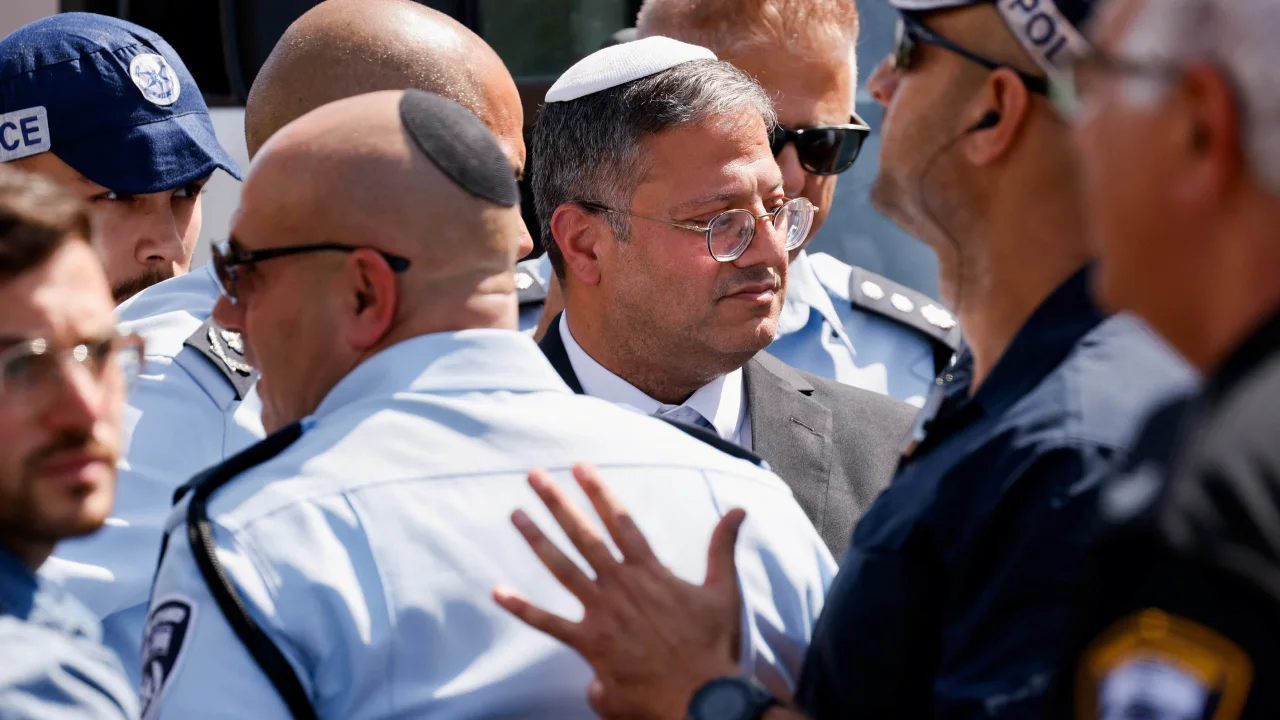Itamar Ben-Gvir, Israel Minister of National Security, currently visited the Temple Mount in Jerusalem, recognized to Jews because the holiest site, and to Muslims as Haram al-Sharif. This visit has drawn condemnation from Palestinian authorities and neighboring countries. The Temple Mount holds immense religious significance for both Jews and Muslims, making it a sensitive and contentious location. Ben-Gvir’s visit on Tisha B’Av, a day of Jewish mourning, added to the tensions surrounding the site and its historical complexities.
Condemnation from Palestinian Authority and Neighbors:
The Palestinian Authority and the authorities of Jordan, the custodian of Jerusalem’s holy sites, condemned Ben-Gvir’s go to as a breach of worldwide regulation and the ancient and prison popularity of Jerusalem. They view themselves as protectors of the non-secular rights of Muslims and Christians withinside the city. Turkey and Egypt also criticized the visit. They consider the site integral to the Palestinian cause and condemn any perceived attempts at “Judaizing Jerusalem.
Context of Political Unrest:
Ben-Gvir’s go to comes amid 29 weeks of protests towards the Israeli government’s proposed judicial reforms. These reforms have sparked controversy and opposition within the country. The Supreme Court’s decision to hear challenges to a law banning the court from rejecting government decisions based on “unreasonableness” has added to the tensions within the political landscape.
Controversial Figure and Calls for Change:
Itamar Ben-Gvir is a divisive figure in Israeli politics, having faced past convictions for anti-Arab racism. He advocates for changing the status quo at Israel’s holy sites, including the Temple Mount. Under the Status Quo settlement relationship returned to Ottoman rule. Most effective Muslims are allowed to pray inside the Al-Aqsa Mosque compound. While non-Muslims can visit during designated times. Jewish nationalist groups have called for Jewish prayer rights at the site, leading to clashes and tensions.
Conclusion:
The visit of Israel Minister of National Security to the Temple Mount has ignited tensions and condemnation from Palestinian authorities and neighboring countries. The site’s religious significance and historical complexities make it a sensitive issue with deep-rooted political implications. As protests continue within Israel and the Supreme Court addresses the controversial judicial reforms, the situation remains tense, and further actions at the holy site could escalate the already fragile situation in the region.
